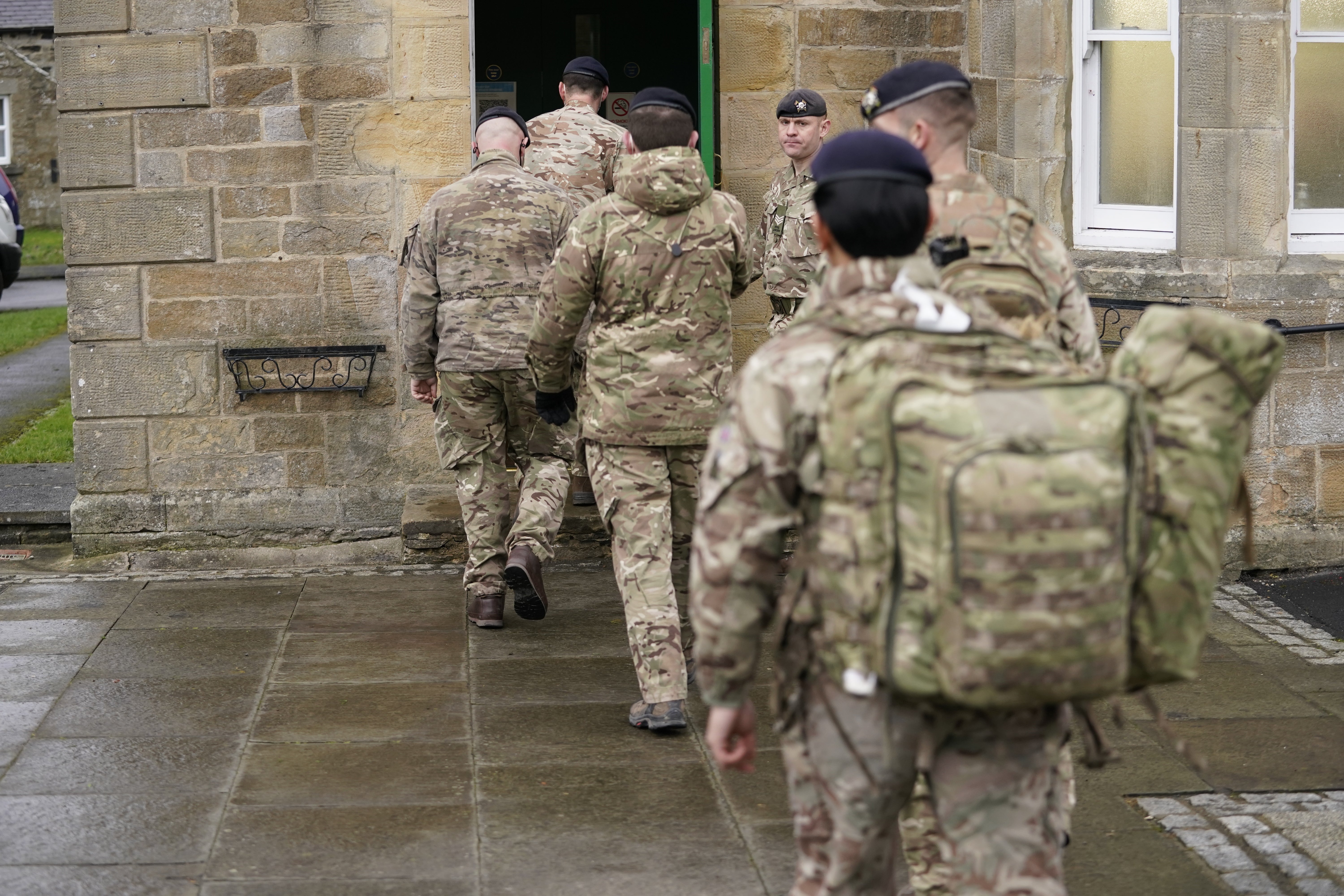Extreme right-wing groups recruiting military personnel
The Intelligence and Security Committee said current policies that do not limit which organisations personnel can join are ‘somewhat risky’.

Extreme right-wing groups are targeting military personnel as potential recruits but leaders of the armed forces provide no clear direction over whether they can become members, a report has found.
The Intelligence and Security Committee (ISC) said current policies that do not limit which organisations personnel can join are “somewhat risky” given the sensitive nature of the jobs carried out by service members.
It also warned there was no process in place to monitor extremists who had travelled overseas and returned to the UK having developed connections with other far-right groups and potentially become more radicalised.
Mark Jones, a former member of banned far-right group National Action, travelled to Ukraine in 2017 to meet members of right-wing militia Azov Battalion, and had also been messaging a member of Lithuanian far-right group Skydas.
He was jailed for five and a half years in June 2020.
Another member of the group was Finnish-born British soldier and Afghanistan veteran Mikko Vehvilainen.
The committee said: “Extreme right-wing terrorists often display an interest in military culture, weaponry and the armed forces or law enforcement organisations – the director-general for MI5 noted that ‘many of these people are absolutely fixated with weaponry’.
“This leads both to individuals seeking to join the military, and groups seeking to recruit within the military.
“The fact that the armed forces do not provide clear direction to service personnel regarding membership of any organisation – let alone an extremist one – would appear to be something of an anomaly.
“It could be argued that this is a somewhat risky approach, given the sensitive roles of many service personnel.”
In April last year figures uncovered by the Guardian showed that at least 16 service personnel had been referred to the Government terrorism prevention programme in a two-and-a-half-year period, the majority of which were over far-right beliefs.
Defence intelligence officials told the committee: “Ministry of Defence policies do not explicitly state which organisations a service person may be a member of, nor do they place limits on the nature of organisations that a service person may join.
“However, any extremist ideology is completely at odds with the values of our armed forces and MoD works closely with police and security partners to ensure that any activity or membership of concern is thoroughly investigated.”
The ISC found there was no process in place to monitor those who travelled abroad for “extreme right-wing terrorism-related purposes and have returned to the UK”.
It said there was a “strong possibility” that the returning fighters will have been “further radicalised and developed connections with others who share their extreme right-wing ideology”.
Concerns were also raised about the efficacy of police vetting for new recruits.
In April last year, Metropolitan Police officer Ben Hannam was jailed for more than four years for membership of National Action.
He had been working as a probationary officer for nearly two years before he was found on a leaked database of users of extreme right-wing forum Iron March and arrested.
The committee found: “There appears to be an issue around the current vetting processes for candidates applying to join the police – the lack of thorough background checks is a matter of concern.
“As the internet and the wider online sphere is the key driver of the extreme right-wing terrorism threat, it follows that online activity must be closely scrutinised when the police are assessing whether an individual is suitable to join its ranks.”
Among 21 conclusions and recommendations, the committee also said:
– MI5 and counter-terror police should be “alert” to the potential for links between the far right and mixed martial arts as it highlighted that several instructors in other countries were “previously found to have been involved in National Action”.
– MPs must scrutinise how and why people are referred to the anti-terror programme Prevent amid a “continuing rise in the number of referrals for concerns around extreme right-wing activity”.
– It quoted a Home Office assessment from June 2021 that found the extreme right-wing threat “is likely to increase over the next five years, with economic decline caused by Covid-19 being a likely driver of increased threat”.
– There was some limited evidence of Russian state support for extremist right-wing groups in the UK, in what the committee said was likely to be “a bid to fuel divisions and increase socio-political discord”.
Bookmark popover
Removed from bookmarks